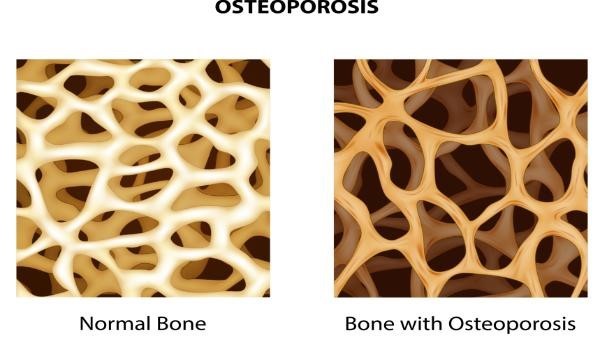Your period that used to come once a month like clockwork doesn’t anymore. Some months nothing happens and other months you are bleeding so much you are afraid to leave your house. You begin to wonder what is happening to me, is this normal?
When you were pre-teens, your mother or your health class teacher had “the talk” with you. You know the one about puberty and the beginning of menstruation. Fast forward, you are now a middle-aged woman, the years have gone by quickly. You look in the mirror one day and notice dark hair or two growing out of your chin. You also notice that at random times for no reason, you begin to get so hot you would like to strip your shirt off.
Welcome to perimenopause!! Hopefully, it will be a smooth transition. The journey will be your own but you are not alone. Read on for the technical information on the journey, possible bumps in the road, helpful tips, and the destination.
Perimenopause
This phase usually begins in a woman’s 40s but can start earlier. Perimenopause lasts about 10 years and ends when a woman enters menopause. During perimenopause, your ovaries gradually produce less and less of the hormones estrogen and progesterone. Estrogen helps to maintain the female reproductive system and female characteristics. Progesterone helps to regulate your menstrual cycle, prepare your body for pregnancy and help to maintain a pregnancy. It is important to use birth control during perimenopause as you can get pregnant.
The decreasing level of these hormones is responsible for the changes and symptoms of perimenopause such as:
- Irregular periods, more or less frequent, heavier or lighter bleeding.
- Increase in premenstrual symptoms
- Vaginal dryness
- Stress incontinence
- Mood swings
- Headaches
- Changes in sex drive
- Weight gain
- Hot flashes
- Night sweats
- Racing heart
- Changes in hair and skin
- difficulty concentrating and forgetfulness
- Difficulty sleeping
10 helpful tips to get through menopause
- Turn the heat down at night, and keep your bedroom cool
- A cooling pillow helps with the night sweats
- Cooling sheets are also beneficial for battling night sweats
- Dress in layers, so you can remove them if needed
- Carry a portable fan with you.
- Use a vaginal moisturizer such as Replens for vaginal dryness
- Use a lubricant like Wet also for vaginal dryness
- Poise pads for light stress incontinence
- Exercise for weight gain, mood swings, and sleep difficulty
- Meditation
Menopause
Most women go through menopause between 45 and 55 years of age. The definition of menopause is: not having any period for 12 months, in a row. For these 12 months, you should continue to use birth control, if you want to avoid pregnancy.
During menopause, the same symptoms as perimenopause can occur or continue due to the decline in the hormone estrogen. For the majority of women, most of the symptoms improve or stop after about 4 to 6 years.
However, some symptoms do continue for the rest of a woman’s life. One symptom that continues is vaginal dryness and thinning of the vaginal walls. This can make sex uncomfortable and partners should discuss what feels good and what is painful. Despite this, women can continue to have an enjoyable satisfying sex life well into their senior years. A patient, gentle partner, and extra lubricant are essential.
Post Menopause
After a woman has not had a period for 12 months, she has officially entered post-menopause. Women need to continue to have regular checkups, even pelvic exams, and pap smears. Talk with Their doctor about how often these exams should be. A woman who experiences post-menopause bleeding needs to see her doctor quickly to determine the cause, this is not normal. Due to having those low hormone levels, a post-menopause woman has the following risks:
- Increased risk of heart disease
- Risk of Osteoporosis
- Increased urinary tract infections
- Increased risk of bladder leakage
- Overactive bladder
- Weight gain
- Sexual changes, the vagina is drier and the vaginal walls become thin
Hormonal treatment
If the symptoms are too uncomfortable. There is an option of hormone replacement therapy. Hormone replacement can help relieve some of the symptoms that occur during the transition such as hot flashes, vaginal dryness, and mood swings. The hormone therapy can be taken in pill form or applied in different topical forms.
There can be some serious risks to your health as a result of hormone replacement therapy. Some women may not be able to have hormone replacement therapy due to a history of other medical conditions such as breast cancer.
If vaginal dryness is your main symptom. You may be able to use low-dose vaginal estrogen cream or ring. If you are considering these options, have a thorough discussion with your doctor about the risks vs. benefits.
Non-hormonal treatment
If you are looking for some relief from the hot flashes and can not or do not want to use a hormonal treatment. Some antidepressants have worked for many women. If vaginal dryness is a symptom you struggle with, use a vaginal moisturizer such as Replens and a vaginal lubricant such as Uberlube luxury lubricant. Some women find meditation and deep breathing exercises help to relieve or prevent some symptoms. Being mindful of eating a healthy diet, getting regular exercise and the proper amount of sleep is always important.
You Made it!
Celebrate!! You made it through perimenopause and menopause. You have arrived at post-menopause. There will be no more premenstrual symptoms(backaches, bloating). There will be no more messy periods and no more worries about getting pregnant.

You are experienced in this journey now. Discussing the good, the bad, and the ugly of “the change,” should not be a taboo subject. It is a normal transition that all women have or will go through. Do not be afraid or embarrassed to discuss menopause with the women you love who have yet to take the journey.


